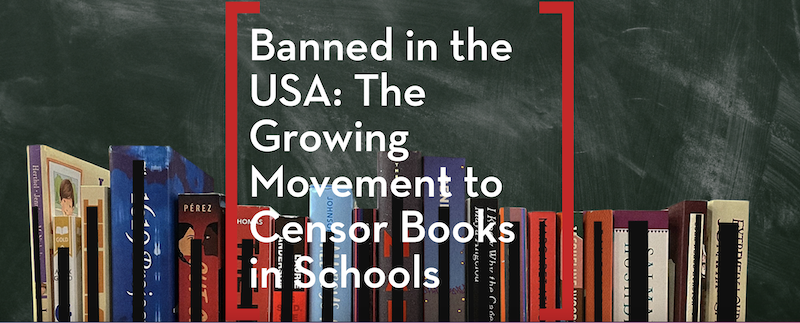PEN America has released a new report on book bans in schools during the 2021-22 school year showing a marked increase in efforts to limit what students are reading—and a troubling, coordinated campaign of groups pushing those efforts.
From July 1, 2021, to June 30, 2022, more than 2,500 book bans occurred in 138 school districts in 32 states, with almost 4 million students affected. Texas had the highest number of book bans by far, with 801 bans in 22 school districts; Florida was second, with 566 bans in 21 districts. PEN America defines a book ban as “any action taken against a book based on its content and as a result of parent or community challenges, administrative decisions, or in response to direct or threatened action by lawmakers and other governmental officials,” which leads to a book becoming less accessible to students.
Of the books that were banned, 41 percent have LGBTQ themes or characters and 40 percent have protagonists or “prominent” characters of color. Seventy-five percent of the banned books are fiction, and nearly half, 49 percent, are aimed at young adults.
PEN America also noted 50 groups that are actively working to limit access to certain books and directly linked them to 20 percent of the book bans the report documented; additionally, those same groups likely influenced an additional 30 percent of the bans, according to the report.
Suzanne Nossel, CEO of PEN America, said in a press conference on Monday that while there are legitimate channels for parents and school districts to discuss what learning materials are age-appropriate, such as parent-teacher conferences, the recent bans reflect “a deliberate effort to fan a sense of panic, that there’s something going on in our schools that is dangerous, that is corrupting. … It’s detracting from teaching and learning at a time when we’re trying to get our public schools back on track after the pandemic and put the focus on children.”
Author Ashley Hope Pérez, who spoke alongside Nossel, said that efforts to censor students’ reading are a “pretext.”
“It is a proxy war on students that share the marginalized identities of the authors and characters of the books under attack,” Pérez said, adding that for students that share these identities, book banning signals that “their existence and presence is somehow controversial.”
